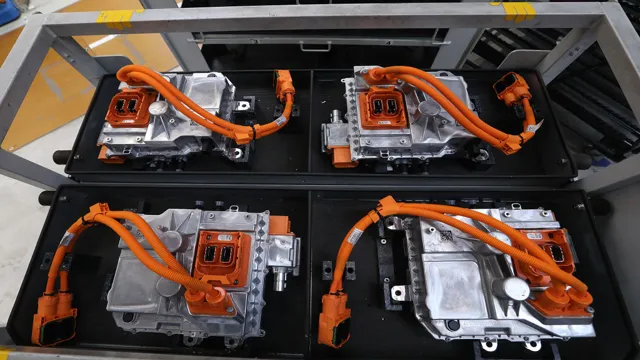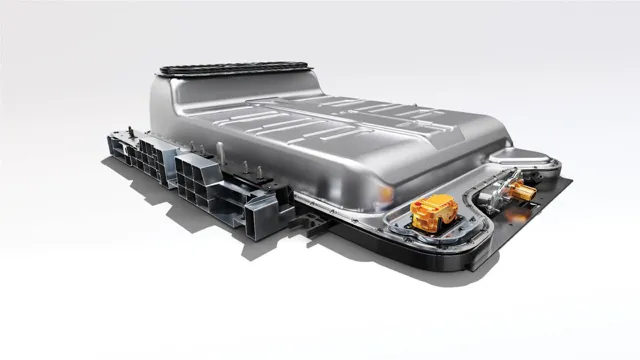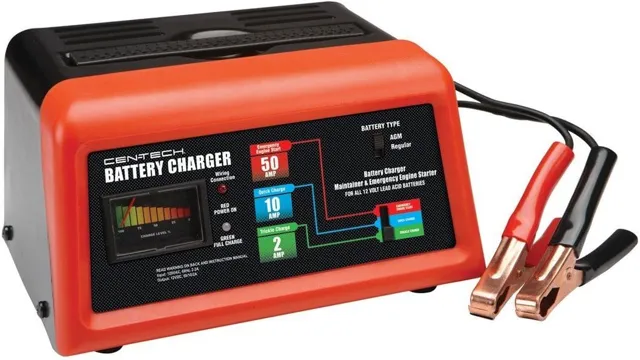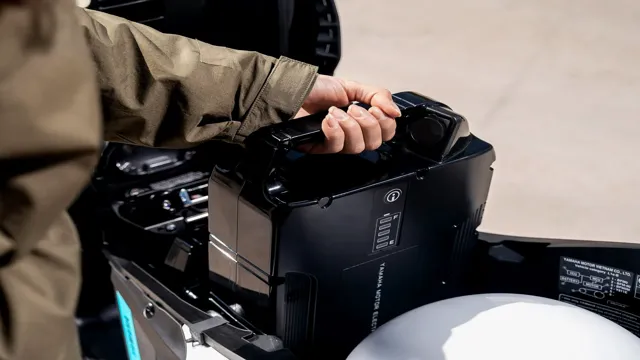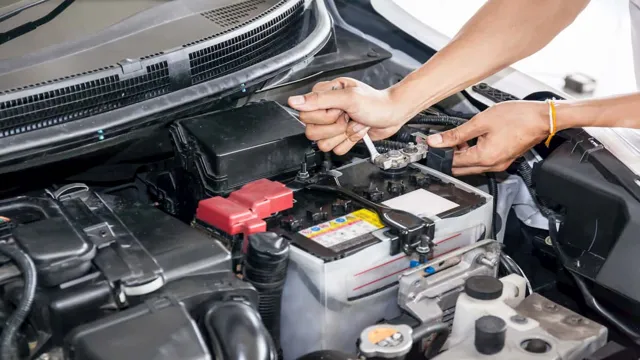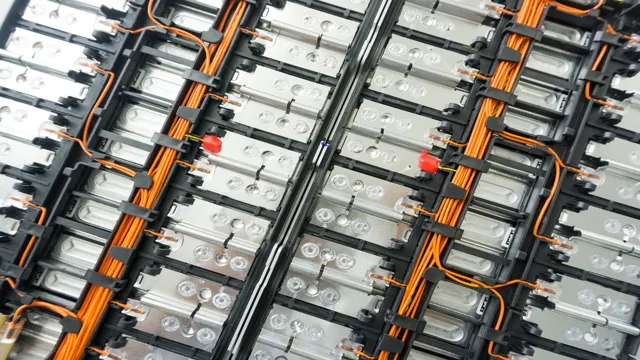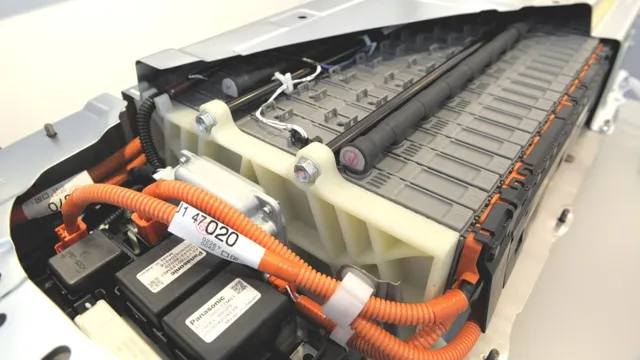Unlocking the power: A comprehensive guide to electric car battery specifications
Electric cars are gaining popularity around the world as more and more people look to reduce their carbon footprint. While electric vehicles don’t emit any pollutants themselves, they do rely on electric car batteries to store power. These batteries are crucial to the performance of electric cars, and their specifications can greatly impact how far a car can travel on a single charge, how fast it can accelerate, and even how much weight it can carry.
In this blog post, we’ll take a close look at the specifications of electric car batteries and discuss what they mean for the future of electric vehicles. So, buckle up, charge your battery, and let’s dive in!
Overview of Electric Car Batteries
When it comes to choosing an electric car, the battery specifications play a crucial role. The battery is essentially the heart of an electric car, providing it with the power to run. The two primary types of batteries used in electric cars are Lithium-Ion (Li-ion) and Nickel-Metal Hydride (NiMH) batteries.
Li-ion batteries are preferred over NiMH batteries as they are more efficient and have a higher energy density, which means they can store more energy in a smaller space. The capacity of an electric car battery is measured in kWh (kilowatt-hours) and the range of an electric car depends on its battery capacity. While a higher battery capacity may seem appealing, it can also lead to longer charging times and ultimately add to the cost of the vehicle.
Therefore, it’s essential to choose a battery capacity that meets your driving needs. Additionally, the charging time, battery life, and warranty are also crucial factors to consider when selecting an electric car battery. Ultimately, it’s essential to make an informed decision based on your driving needs, budget, and overall preference.
Types of Electric Car Batteries
Electric car batteries are of various types, and each has its unique characteristics that set them apart. Lithium-ion batteries are the most common type used in electric cars due to their energy density, low maintenance, and long life. These batteries are lightweight and can store a large amount of energy, making them perfect for electric vehicles.
Another type of battery is Nickel-Metal Hydride (NiMH), which is a bit older and less efficient than lithium-ion batteries. These batteries are heavier, bulkier and have less storage capacity, but they are still widely used in hybrid cars. Lead-acid batteries are the oldest type used in electric cars and are still used in some golf carts and smaller electric vehicles due to their durability.
However, these batteries are not suitable for powerful electric vehicles as they are bulky and heavy. In summary, there are different types of electric car batteries, and understanding the differences between them can help individuals to make informed decisions when looking to buy an electric car.
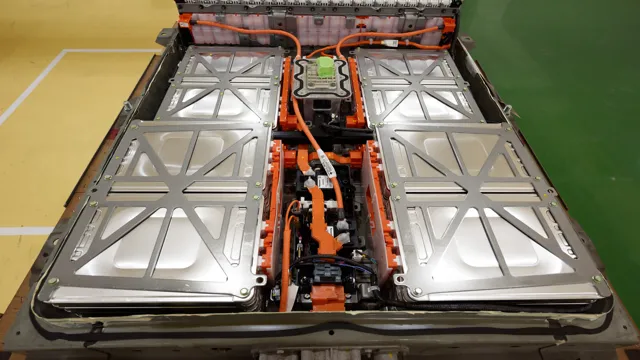
Capacity and Voltage
Electric car batteries are an important component in the success of electric vehicles. The capacity and voltage of these batteries can determine the maximum range of the vehicle and the speed of charging. Capacity refers to the amount of energy a battery can store, while voltage refers to the electrical pressure that moves the energy.
The higher the capacity and voltage of a battery, the longer the range and faster the charging time. However, increasing these factors also means a heavier and more expensive battery, which can limit the practicality for daily use. Manufacturers are constantly improving the technology of electric car batteries to strike a balance between capacity, voltage, weight, and cost.
By doing so, they aim to increase the appeal and accessibility of electric vehicles to the general public.
Factors that Affect Electric Car Battery Performance
When it comes to electric car battery specifications, there are numerous factors that affect performance. Firstly, the size of the battery pack has a direct impact on the vehicle’s range and charging time. The larger the pack, the more energy it can hold, which translates to a greater range.
However, larger packs also take longer to charge, so it’s important for electric vehicle owners to strike a careful balance between range and charging time. Another key consideration is the age of the battery, as lithium-ion cells lose capacity over time and with use. Additionally, factors such as temperature, driving style, and terrain can all influence electric car battery performance.
Extreme temperatures, for example, can reduce capacity and affect charging times, while hilly terrain can lead to increased energy consumption. By understanding these factors and selecting a battery that fits their needs, electric vehicle owners can ensure optimal performance and get the most out of their vehicle.
Temperature
Temperature One of the main factors that affect electric car battery performance is temperature. Extreme temperatures, whether hot or cold, can have a noticeable impact on how far an electric car can travel on a single charge. For example, in cold weather, the battery may lose some of its energy to heat itself up, which means there is less power available to actually move the car forward.
Similarly, in hot weather, the battery can become overheated, which can lead to a decrease in performance and potentially even damage to the battery itself. This is why it’s important for electric car owners to be aware of the temperature outside and plan accordingly, especially if they plan on taking longer trips. By monitoring temperature and adjusting driving behaviors, drivers can improve the performance and lifespan of their electric car batteries.
So, remember to keep an eye on the temperature and adjust your driving as needed to maximize your electric car’s battery life.
Driving Habits
Driving Habits, Electric Car, Battery Performance Driving habits play an essential role in the performance of electric car batteries. Certain factors like speedy driving, sudden starts, and excessive braking can lead to rapid battery drain, resulting in reduced range. Maintaining a steady and moderate pace can help optimize battery capacity.
Using features like regenerative braking can help extend range by capturing and storing energy that would otherwise be lost during braking. Properly planning routes and avoiding long detours can also help preserve battery life. Additionally, it’s important to ensure that the electric car is not left idle for an extended period, as prolonged inactivity can negatively impact battery performance.
Finally, it’s crucial to ensure that the battery is charged adequately and that charging habits are consistent to maximize battery life. By adopting good driving habits and taking care of the battery, electric car drivers can enjoy optimal performance and an extended range.
Charging Habits
Electric car battery performance is influenced by a range of factors, including charging habits. Some common bad habits that may negatively impact battery performance include frequent fast charging and allowing the battery to discharge to a low level consistently. It is essential to charge an electric car regularly and adhere to the preferred charging routine recommended for the specific vehicle model.
While electric cars may come with different charging protocols, most vehicles from different manufacturers can use fast chargers. However, repeatedly using fast chargers can decrease battery lifespan over time and ultimately affect electric car battery performance. Therefore, it is generally recommended that electric car owners use fast chargers only when necessary.
To maximize an electric car battery’s performance, it is crucial to follow the recommended charging regimen, avoid deep discharge cycles, and minimize stress on the battery.
Comparison of Electric Car Battery Brands
If you’re in the market for an electric car, one of the most critical factors you’ll need to consider is the battery. The battery is the heart of your electric car, powering everything from the engine to the lights. The performance of your battery can significantly impact your car’s range, power output, and driving experience.
Therefore, it’s imperative to compare electric car battery brands to get an idea of what’s available and how each battery brand performs. When it comes to electric car batteries, several brands dominate the market, including Tesla, LG, Panasonic, and Samsung. Each battery brand has its own unique specifications, including capacity, voltage, and charging time.
Therefore, it’s essential to consider your needs and budget when choosing between these brands. With the right research and knowledge of electric car battery specifications, you can make an informed decision to buy a car that meets your needs.
Tesla
When it comes to electric cars, the battery is the lifeline of the vehicle. Tesla is one of the leading companies in the electric vehicle market, and their batteries are highly regarded. However, there are other battery brands available, and it’s important to compare them to see which one is the best fit for your needs.
One popular brand is LG Chem, which is used by several car manufacturers, including Chevrolet. Another brand is Panasonic, which supplies batteries to Tesla and other car makers. Each brand has its strengths and weaknesses, such as LG Chem having a higher energy density but being more expensive, while Panasonic has a lower energy density but is more affordable.
It’s important to do your own research and compare these brands to determine which one is the best fit for your electric car, keeping in mind factors such as cost, range, and charging time. No matter which brand you choose, the switch to an electric car and the use of a high-quality battery is a step towards a more eco-friendly and sustainable future, and it’s exciting to see the advancements being made in electric car technology.
Nissan
Nissan is one of the leading car manufacturers in the world, and their electric vehicles have gained a lot of popularity in recent years. When it comes to the battery pack of an electric car, Nissan has been using their own brand of lithium-ion batteries for many years now. However, the market for electric car batteries is growing rapidly, and there are many other brands available now.
Some of the most popular brands include Tesla, Panasonic, LG Chem, and Samsung SDI. Each brand has its own unique features, such as longer driving range, faster charging, or lower cost. It all depends on what you’re looking for in your electric car battery.
If you’re a Nissan fan, then the Nissan battery pack may be the best choice for you. But if you’re open to other options, it’s worth doing some research to see which battery brand would best fit your needs. After all, the battery is one of the most important components of an electric car, so it’s important to make an informed decision.
Tips for Maintaining Your Electric Car Battery
Maintaining your electric car battery is crucial in extending its lifespan and ensuring optimal performance. Knowing your electric car battery specifications will guide you on how to take proper care of it. One important specification to consider is the battery’s capacity, which refers to the amount of energy it can store.
To maintain its capacity, avoid charging your battery to 100% or letting it go below 20%. It’s also best to charge your battery regularly and avoid exposing it to extreme temperatures that can damage the battery cells. Checking the battery’s state of health and balancing its charge regularly can also help prolong its life.
By following these tips, you can keep your electric car battery performing well and avoid costly repairs in the future.
Conclusion
So, there you have it – the electrifying world of electric car battery specifications! It’s enough to make your head spin faster than a fully charged electric vehicle. Whether you’re a tech-savvy engineer or just an eco-conscious driver, understanding these specs is key to unlocking the full potential of your electric car. With innovative advancements on the horizon and the push for sustainable transportation growing stronger each day, we can’t wait to see what the future holds for electric car batteries.
So, let’s buckle up and charge ahead towards a greener and brighter tomorrow!”
FAQs
What are the important specifications of an electric car battery?
The important specifications of an electric car battery include its capacity, voltage, power output, charging time, and cycle life.
How long does it take to charge an electric car battery?
The time taken to charge an electric car battery depends on its capacity, charging rate, and the type of charging station used. Typically, it can take anywhere from 30 minutes to several hours.
Can an electric car battery be replaced?
Yes, an electric car battery can be replaced. However, it can be an expensive and time-consuming process. It is essential to ensure that the new battery has the same specifications as the old one.
What is the cycle life of an electric car battery?
The cycle life of an electric car battery refers to the number of times it can be charged and discharged before its performance starts to degrade. Typically, a high-quality electric car battery has a cycle life of around 1,000 to 2,000 cycles.
